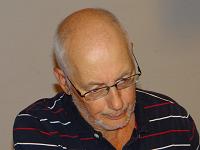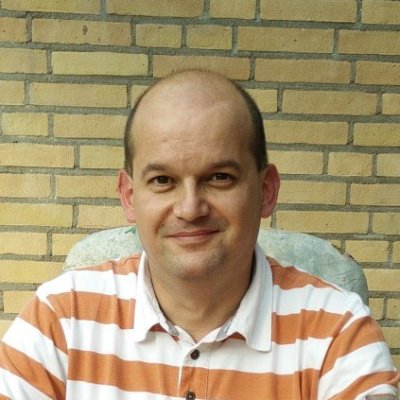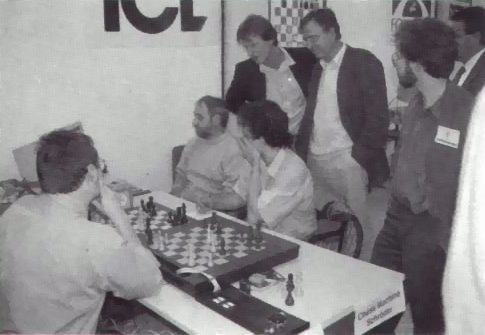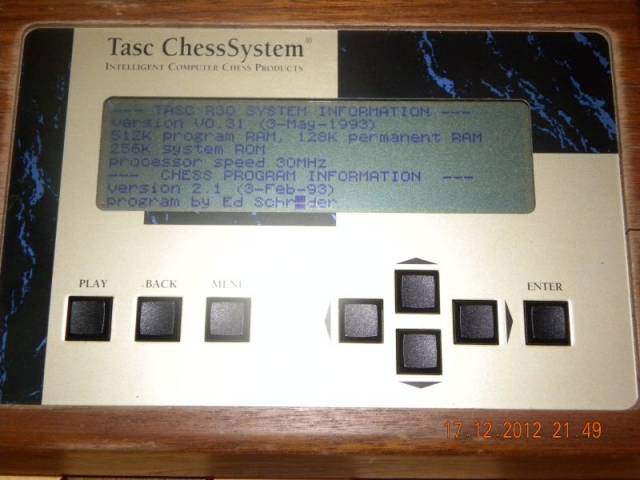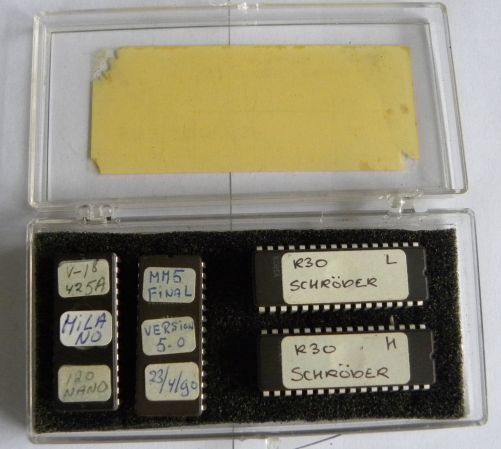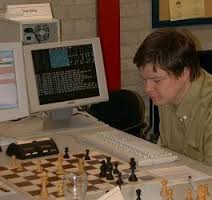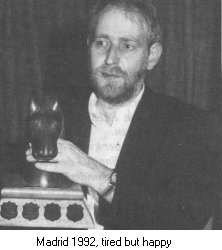From the CPW:
The ChessMachine
A chess playing entity by TASC, extending an IBM PC with a pluggable ISA card containing an ARM2 RISC processor and RAM from 128 KiB up to 1 MiB, to upload and run two bundled chess programs, either Gideon by Ed Schöder, the World Microcomputer Chess Champion of the WMCCC 1991 and as Chessmachine WK the World Computer Chess Champion of the WCCC 1992 [1], and The King by Johan de Koning. The PC had its own control program, and a GUI to interact with the machine. The ChessMachine was manufactured and sold between 1991 and 1995 as RISC successor of The Final Chesscard.
Wil Sparreboom
TASC B.V.
The Advanced Software Company, a Dutch company dedicated to development of chess related products, software and hardware. Located in Rotterdam, TASC is owned by .
Wil Sparreboom.
Together with his right-hand Mark Derksen they released a number of innovative chess products.
Mark Derksen
A photo collage
Unfortunately for TASC it couldn't keep up the hardware race with INTEL, with the release of the 80486 the ARM RISC chip was about equal in speed, with the release of the Pentium TASC lost its dominance in computer chess and about every chess programmer moved to the PC.
It was the end of an area of (commercial) dedicated chess computers, the TASC revolution lasted only 4-5 years.
Madrid 1992
Last round against the Saitek Sparc.
REBEL (aka Gideon, Chessmachine)
World Champion again.
___________________________________________________________________________________________________
Curiosity
A couple of years ago I discovered 2 eproms in my desk. I vaguely remembered Wil Sparreboom had asked me to produce a version for the R30 which I delivered but for some reason was never released. Although it was 20 years ago there somehow was the recognition these eproms could be the R30 version and upon checking the eproms it really was the program that won in Madrid.
Click on the picture to enlarge
The R30 eproms found after 20 years.
The news was received with great enthousiasm by the nostalgic folks (of which I belong too) longing back to the romantic 80's of dedicated chess computers and its rich variarity of models and feeling those wooden pieces in your hand again while playing chess instead of clicking with a mouse on a PC screen.
I sold the eproms for a considerable amount to a group of people and gave them the right to duplicate and sell the eproms for R30 and R40 owners against a reasonable price to a) cover their expenses and b) for maximum distribution among the still many R30/R40 owners in order that the program would be available for everybody and would not be sold against exorbitant prices exploiting a profitbale situation.
A typical Hollwood ending, except boy didn't get girl.
TASC engine programmer Johan de Koning known as the author of many Chessmaster releases.
Madrid 1992, Ed Schröder, tired but happy.


